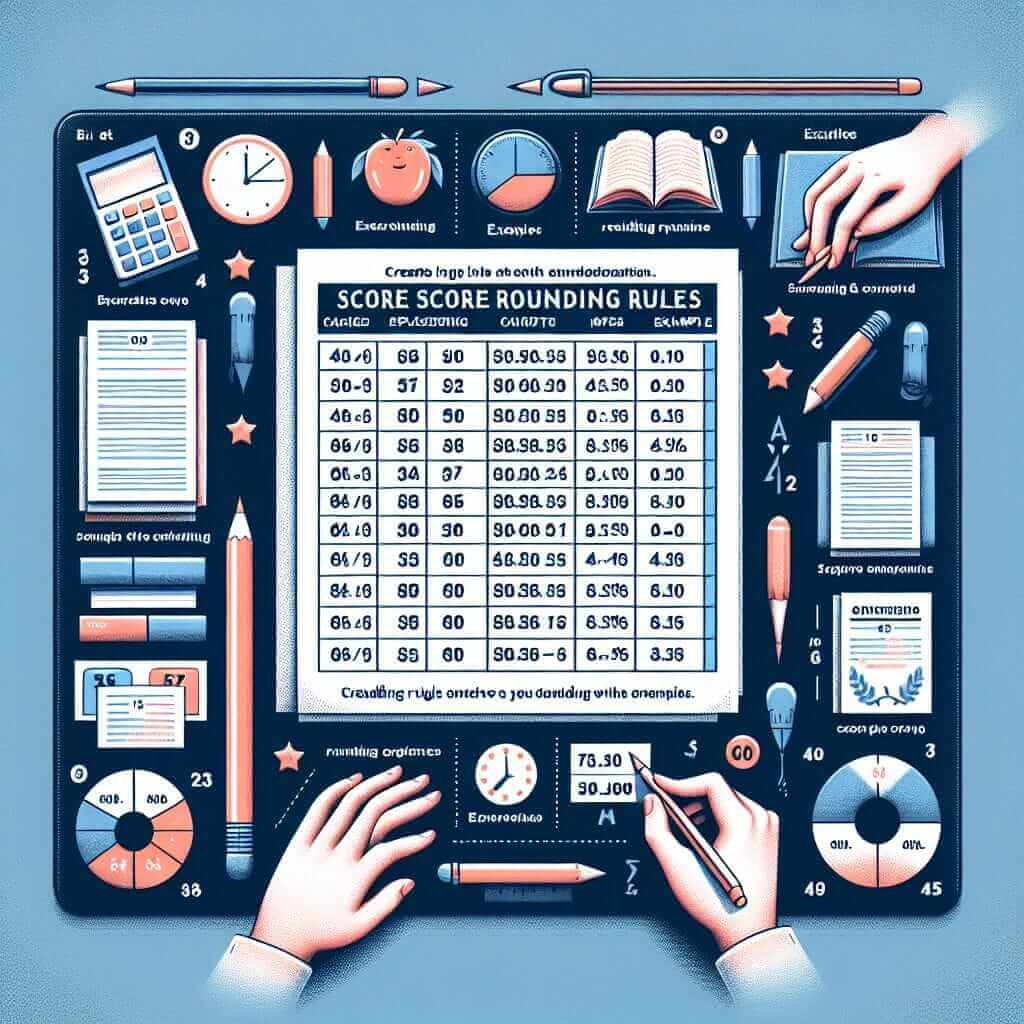As an IELTS instructor with over two decades of experience, I’ve encountered countless questions about achieving a desired band score. One recurring query is about IELTS score rounding, often phrased as “how to round IELTS score online”. This article aims to demystify the concept of IELTS score rounding and provide clarity on how your final band score is calculated.
IELTS Score Calculation and Rounding Rules
Firstly, it’s crucial to understand that there is no online tool or method to “round up” your IELTS score. Your IELTS score is determined based on your performance in all four test sections: Listening, Reading, Writing, and Speaking. Each section is assessed on a 9-band scale, and your final band score represents the average of these four individual scores.
Here’s how the rounding system works:
- If the average score ends in .25: Your score is rounded up to the next half band. For example, an average of 6.25 becomes 6.5.
- If the average score ends in .75: Your score is rounded up to the next whole band. For example, an average of 7.75 becomes 8.
- If the average score ends in .125 or .625: The score is rounded down to the nearest half band or whole band respectively.

Focusing on What Matters: Your Performance
Instead of seeking ways to manipulate your score through rounding, concentrate on maximizing your performance in each IELTS section. Here’s why:
- Rounding has limited impact: The rounding rules are designed to be fair, and the potential score difference is minimal.
- Test preparation is key: Thorough preparation is the most effective way to achieve your desired band score. This includes understanding the test format, practicing each section diligently, and familiarizing yourself with the assessment criteria.
Tips for Maximizing Your IELTS Score
- Practice regularly: Consistent practice is essential for building your skills and confidence. Utilize official IELTS practice materials and mock tests to simulate exam conditions.
- Focus on your weaknesses: Identify your weaker areas and dedicate more time and effort to improving them.
- Develop effective test-taking strategies: Learn time-management techniques for each section and practice applying them during mock tests.
- Seek feedback from experienced instructors: Feedback on your practice tests can provide valuable insights into areas for improvement and help refine your approach.
Conclusion
While it’s natural to be curious about IELTS score rounding, remember that it plays a relatively small role in determining your final band score. Instead of chasing shortcuts, invest your energy in dedicated preparation and aim for genuine improvement in your English language proficiency. This approach will serve you far better in the long run, both in your IELTS exam and beyond.